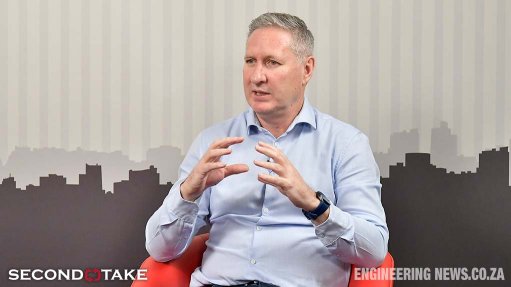How do we navigate the rising gig economy as Temporary Employment Services in SA?
This article has been supplied.
The Temporary Employment Services (TES) industry is adapting to a changing labour market. The Fourth Industrial Revolution has ushered in exciting developments such as the everyday use of artificial intelligence, wireless digital technologies, robotics, a constantly expanding internet as well as a fusing of digital and physical worlds. Undoubtedly, these have played a major role in giving rise to new business models which are currently affecting the nature of work and employment relationships worldwide. While the successful adoption of these technologies is promising for businesses and consumers, it has also presented new challenges to the labour market. It has brought with it economic disruption with uncertain socio-economic consequences for Africa.
Unblurring the lines
The gig economy is a labour market made up of freelance work, as opposed to permanent, in-house jobs. As work tends to be temporary or project-based; gig workers are independently hired to complete a specific project for a specific period. While seeming like TES work, gig work is not to be confused with TES. There are online platforms where gig workers privately offer their services and get into contracts with businesses. TES or labour broking involves companies or the end users employing a temporary workforce through TES companies, which are agencies that provide these workers for a short period of time. Both these types of arrangements are often called alternative or non-standard work arrangements as opposed to traditional, permanent employment.
More and more South African workers are opting for the “non-standard” approach to making ends meet. Many of these are looking towards TES providers to protect their interests and rights in business relationships. Albie Rheeder, from the Temporary Employment Services Division (TESD), remarks that the recently proposed amendments to Draft National Labour Migration Policy and the Employment Services Amendment Bill raises pertinent questions for the digital labour market utilising these gig workers.
Adapting to an evolving labour market
“The inclusion of digital platforms in the act means that businesses like e-hailing services, will need to adapt their models to comply with the changes.” Rheeder goes on to pose the question whether a young entrepreneur that has conceptualised an application which provides a service for South African companies and creates the required employment opportunities be required to report the freelance foreign gig worker in the Baltic states and India that do the development? Do these need to be recorded as employees or workers? “Only time will tell if these international corporations shy away from bringing new technologies and if the act wants to create opportunities for South African citizens,” adds Rheeder. The TES industry helps to boost the economy by creating employment and supporting end users by efficiently providing a supply of short-term labour. The industry will need to evolve with the modern times and updated regulations to continue benefiting the South African economy.
In the interim, the Temporary Employment Services Division (TESD) is providing TES companies with a stakeholder forum to potentially help regulate this specialised industry, helping their members to serve the needs of the client and to protect the rights of the TES candidate, like the gig worker, in a legally compliant environment. The division continues to increase awareness for and supports industry compliancy. It is essential that TES providers comply with all current requirements. In terms of the proposed draft and amendment, good practice requires that there is no missing documentation for foreign workers and that the job application is relevant to the skills on an issued permits for temporary workers who are foreigners in South Africa.
Comments
Press Office
Announcements
What's On
Subscribe to improve your user experience...
Option 1 (equivalent of R125 a month):
Receive a weekly copy of Creamer Media's Engineering News & Mining Weekly magazine
(print copy for those in South Africa and e-magazine for those outside of South Africa)
Receive daily email newsletters
Access to full search results
Access archive of magazine back copies
Access to Projects in Progress
Access to ONE Research Report of your choice in PDF format
Option 2 (equivalent of R375 a month):
All benefits from Option 1
PLUS
Access to Creamer Media's Research Channel Africa for ALL Research Reports, in PDF format, on various industrial and mining sectors
including Electricity; Water; Energy Transition; Hydrogen; Roads, Rail and Ports; Coal; Gold; Platinum; Battery Metals; etc.
Already a subscriber?
Forgotten your password?
Receive weekly copy of Creamer Media's Engineering News & Mining Weekly magazine (print copy for those in South Africa and e-magazine for those outside of South Africa)
➕
Recieve daily email newsletters
➕
Access to full search results
➕
Access archive of magazine back copies
➕
Access to Projects in Progress
➕
Access to ONE Research Report of your choice in PDF format
RESEARCH CHANNEL AFRICA
R4500 (equivalent of R375 a month)
SUBSCRIBEAll benefits from Option 1
➕
Access to Creamer Media's Research Channel Africa for ALL Research Reports on various industrial and mining sectors, in PDF format, including on:
Electricity
➕
Water
➕
Energy Transition
➕
Hydrogen
➕
Roads, Rail and Ports
➕
Coal
➕
Gold
➕
Platinum
➕
Battery Metals
➕
etc.
Receive all benefits from Option 1 or Option 2 delivered to numerous people at your company
➕
Multiple User names and Passwords for simultaneous log-ins
➕
Intranet integration access to all in your organisation


















